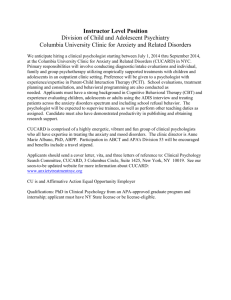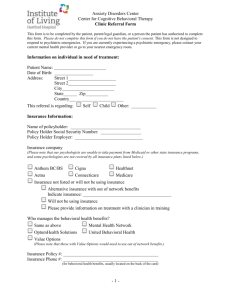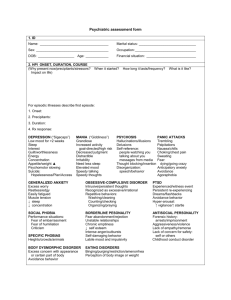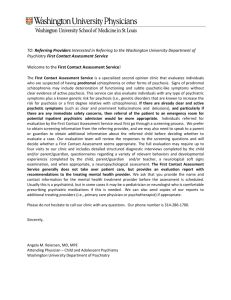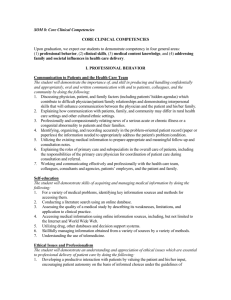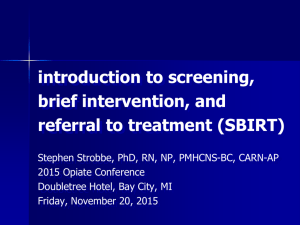Psychiatric Vital Signs - UIC Department of Psychiatry
advertisement
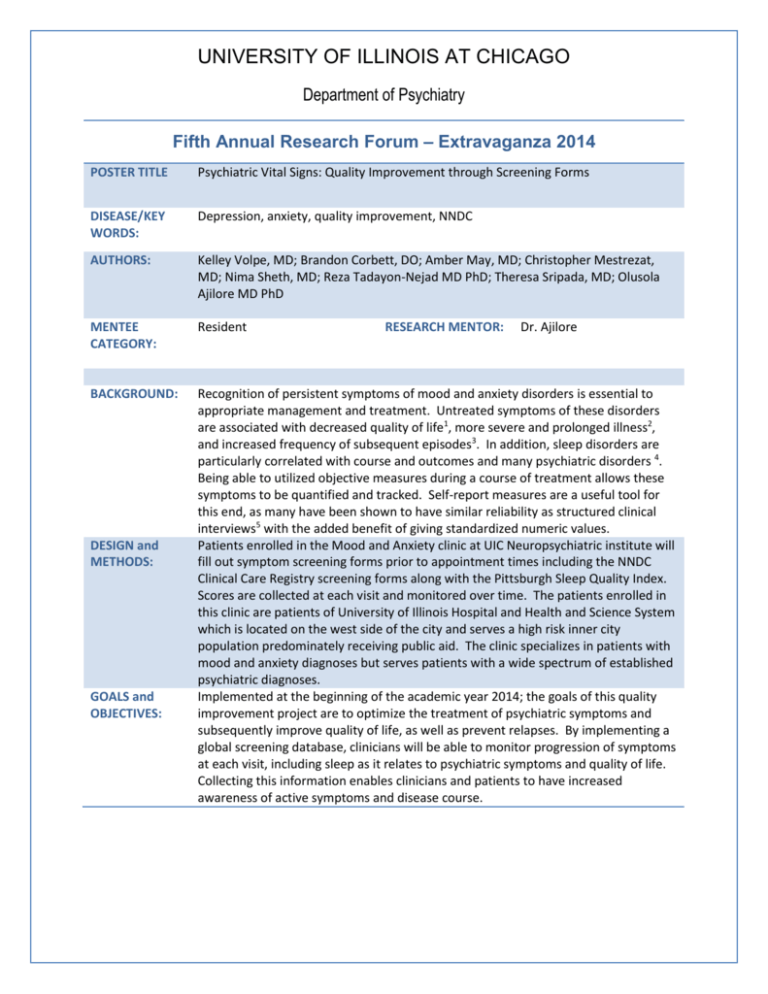
UNIVERSITY OF ILLINOIS AT CHICAGO Department of Psychiatry Fifth Annual Research Forum – Extravaganza 2014 POSTER TITLE Psychiatric Vital Signs: Quality Improvement through Screening Forms DISEASE/KEY WORDS: Depression, anxiety, quality improvement, NNDC AUTHORS: Kelley Volpe, MD; Brandon Corbett, DO; Amber May, MD; Christopher Mestrezat, MD; Nima Sheth, MD; Reza Tadayon-Nejad MD PhD; Theresa Sripada, MD; Olusola Ajilore MD PhD MENTEE CATEGORY: Resident BACKGROUND: Recognition of persistent symptoms of mood and anxiety disorders is essential to appropriate management and treatment. Untreated symptoms of these disorders are associated with decreased quality of life1, more severe and prolonged illness2, and increased frequency of subsequent episodes3. In addition, sleep disorders are particularly correlated with course and outcomes and many psychiatric disorders 4. Being able to utilized objective measures during a course of treatment allows these symptoms to be quantified and tracked. Self-report measures are a useful tool for this end, as many have been shown to have similar reliability as structured clinical interviews5 with the added benefit of giving standardized numeric values. Patients enrolled in the Mood and Anxiety clinic at UIC Neuropsychiatric institute will fill out symptom screening forms prior to appointment times including the NNDC Clinical Care Registry screening forms along with the Pittsburgh Sleep Quality Index. Scores are collected at each visit and monitored over time. The patients enrolled in this clinic are patients of University of Illinois Hospital and Health and Science System which is located on the west side of the city and serves a high risk inner city population predominately receiving public aid. The clinic specializes in patients with mood and anxiety diagnoses but serves patients with a wide spectrum of established psychiatric diagnoses. Implemented at the beginning of the academic year 2014; the goals of this quality improvement project are to optimize the treatment of psychiatric symptoms and subsequently improve quality of life, as well as prevent relapses. By implementing a global screening database, clinicians will be able to monitor progression of symptoms at each visit, including sleep as it relates to psychiatric symptoms and quality of life. Collecting this information enables clinicians and patients to have increased awareness of active symptoms and disease course. DESIGN and METHODS: GOALS and OBJECTIVES: RESEARCH MENTOR: Dr. Ajilore UNIVERSITY OF ILLINOIS AT CHICAGO Department of Psychiatry EXPECTED OUTCOMES: It is expected that a standardized screening process will enable clinicians to enhance treatments therefore decreasing symptoms over time. Sleep is predicted to correlate with worsening symptoms expressed on the other screening forms. Improving sleep will then correlate with improvement in report of mood and anxiety symptoms. Information given on screening forms is anticipated to approximate reporting to clinician during appointment.


